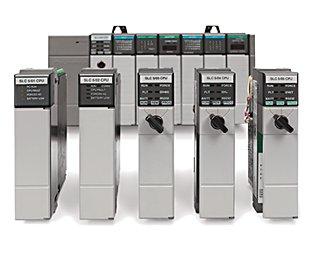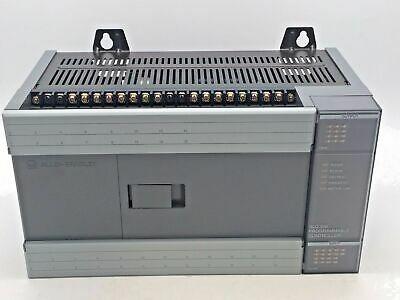SLC-500
Obituary: Farewell to the Allen-Bradley SLC 500 Series PLCs
It is with a sense of nostalgia and respect that we bid farewell to the Allen-Bradley SLC 500 series of programmable logic controllers (PLCs), a stalwart in industrial automation for nearly four decades. Officially retired from support in October 2024, the SLC 500 leaves behind an enduring legacy in factories, plants, and manufacturing facilities worldwide, where its reliability, adaptability, and ease of use contributed to countless successes.

The SLC 500 series first arrived in the 1980s, a time when industrial automation was rapidly advancing. The series introduced modularity, compact design, and robust functionality to meet the needs of growing industries, becoming a standard in small- to medium-scale applications. With an array of processors, from the basic SLC 5/01 to the powerful SLC 5/05, and a variety of I/O and communication options, the SLC 500 quickly became known for its versatility and user-friendly setup.
Through the years, the SLC 500 series became more than a tool; it became an icon of dependability in automation. Its impact can still be felt across industries, where it ran everything from simple assembly lines to complex, multi-process operations. For many technicians, engineers, and plant operators, the SLC 500 was their first experience with PLC programming, often using Allen-Bradley’s RSLogix 500 software. This training ground for a generation of automation professionals ensured the SLC 500’s influence extended far beyond the lifespan of the hardware itself.
As technology evolved, newer models with greater processing power, connectivity, and security emerged. Allen-Bradley introduced the CompactLogix and ControlLogix families, which eventually became the successors to the SLC 500. With their higher capacity, faster processing, and enhanced network capabilities, these new controllers gradually phased out the once-pioneering SLC 500 series. Rockwell Automation officially announced the end of support for the SLC 500 in 2023, marking the conclusion of a significant chapter in automation history.
This PLC is the stalwart of the Allen-Bradley range – PLC5s have all but disappeared, but the SLC-500 remains, albeit now categorised as a ‘Active Mature’ product, and no doubt heading towards end of life with price increases, scarcity and resorting to eBay to find product of unknown reliability.
While we say goodbye to the SLC 500, its contributions to industry will not be forgotten. This series was a foundation on which modern automation was built, and its reliability, simplicity, and versatility set standards that live on in its successors. As legacy systems are gradually retired and replaced, the SLC 500 remains in the memories and careers of those it served—an unsung hero in the evolution of automation.
Rest in peace, Allen-Bradley SLC 500. Your legacy endures in the factories and industries you helped shape, and in the people who trusted you, learned from you, and carried forward your mission of efficient, reliable control.
It is recommended that SLC-500 users start thinking about a migration, probably to CompactLogix.
There are many issues to consider:
- Network Integration
- IO – Migrate or stay with 1746?
- Code Conversion – verbatim or enhanced?
- Factory Acceptance Testing
- Changeover Schedule / Downtime
- Preparing Documentation:
- IO Lists
- Device Lists
- Electrical Drawings
- Functional Descriptions
- Process Descriptions
If you are looking for support or advice, call Applied Tech Systems in Australia on 1300 468 288.
SLC-500 CPUs
SLC500 Fixed Hardware Styles – 1747-L20, 1747-L30 and 1747-L40
SLC-5/01 – DH485 Slave
SLC-5/02 – DH485 Port
SLC-5/03 – DH485 & RS-232
SLC-5/04 – DH+ & RS-232
SLC-5/05 – Ethernet Port + RS232
